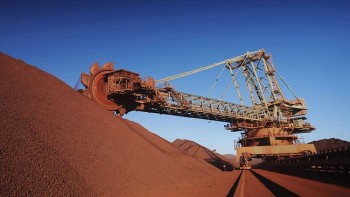
A lot has changed in a month – now its Ausdrill’s turn
Less than four weeks ago, Ausdrill Limited (ASX: ASL) released its 2014 Annual Report and Notice of AGM. At the time, the company was “…expecting an improved result in FY15 with improvements expected particularly in the Energy Drilling Australia business and in the African Mining Services business”.
Earlier this week, the company’s ASX announcement read: “In light of the Group’s results for the first quarter to September 2014, prevailing market conditions, and a revision of the FY2015 forecasts, Ausdrill expects to report EBITDA of between A$150* million and A$160* million on revenues of approximately A$840* million”. That’s down 8-14 per cent on the FY14 figure.
The table below summarises the recent ‘headwind’ experienced by Ausdrill, and I make the following observations.
- With the ASL share price declining from $4.30 to the current $0.77, down 82 per cent in the past 30 months, its market capitalisation is now $240 million. This compares with its net debt at 30 June 2014 of $400.9 million.
- While the impairment expense for FY14 was $73 million, no estimate on the likely impairment provision for FY15 is currently available.
- Virtually all Ausdrill’s revenue is exposed to gold, copper and iron ore, by commodity, and 27 per cent of its revenue comes from Ghana and Mali. The company has recently announced a bad debt of $8 million from Western Desert Resources Ltd, while some pressure from the Ebola crisis in West Africa cannot be ruled out.
- Standard & Poor’s downgraded Ausdrill’s credit rating in March 2014. Combined with the yet-to-be-quantified impairment provision, this could place upward pressure on the company’s interest expense in FY15.
- It is possible Ausdrill’s interest cover, or EBIT (Earnings Before Interest and Tax) divided by the interest expense, could decline further in FY15 – see ‘Interest Cover’ in table below.
| Year to June | 2012 | 2013 | 2014 | 2015 (1) |
| Sales ($m) | 1059 | 1129 | 826 | 840 |
| EBITDA – excluding impairments ($m) | 288.4 | 272.7* | 173.7* | 150-160* |
| D & A ($m) | 116.1 | 123.7 | 99.2 | |
| EBIT ($m) | 172.3 | 149.0 | 74.5 | |
| Interest Expense ($m) | 22.9 | 42.3 | 41.6 | |
| Interest Cover | 7.5X | 3.5X | 1.8X | |
| Impairment Expenses ($m) | – | 9.9 | 73.0 | |
| Shareholders’ Funds ($m) | 740.8 | 817.4 | 752.2 | |
| Net Debt ($m) | 242.2 | 472.5 | 400.9 |
(1) As per the ASX announcement of Monday 20 October 2014.
* Figures exclude the effects of any impairment charges.
well, that is why it 70c now… lowest
As you’ve noted before, its pretty obvious where this sector is headed. Incredibly though, there are at least some who still think this is an area where they can do well. A friend of mine was a member of a local share club (until recently) whose decision making was largely dominated by a couple of people, one of whom is a geologist – and thus knows about things dirt rather than things financial. Already heavily weighted to the mining sector, when she withdrew from this club she told me that it was looking to get more into the speculative miners since they had come back so much!
Takes all types, I suppose.